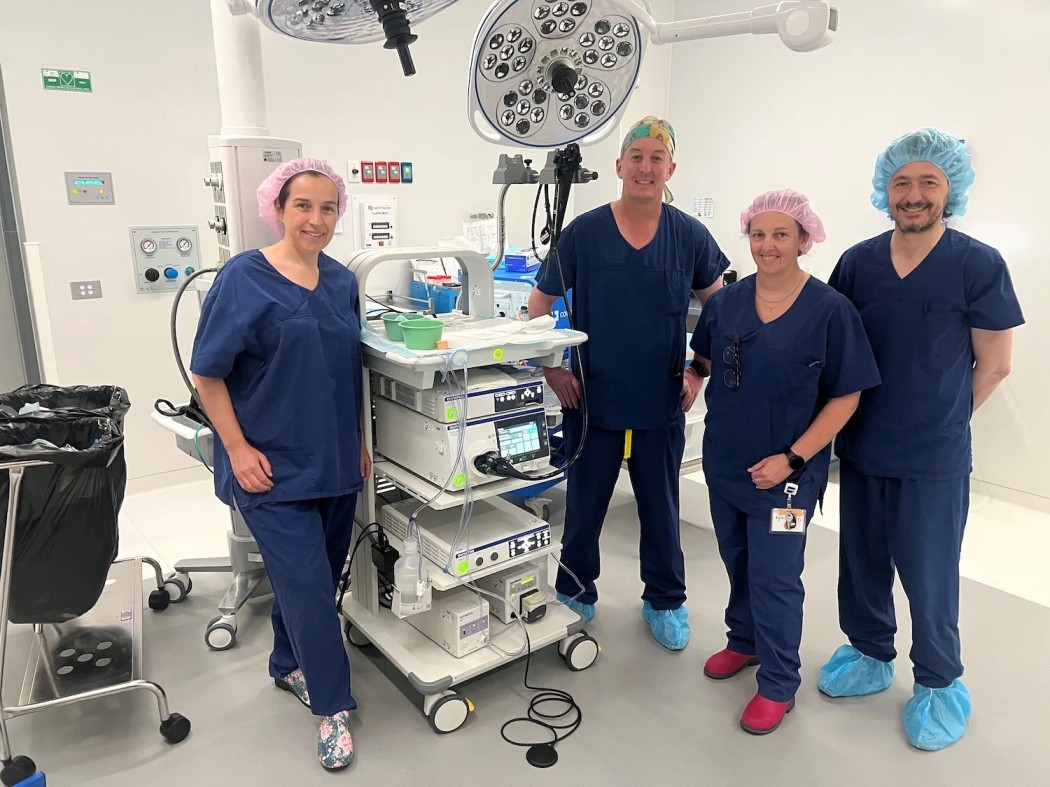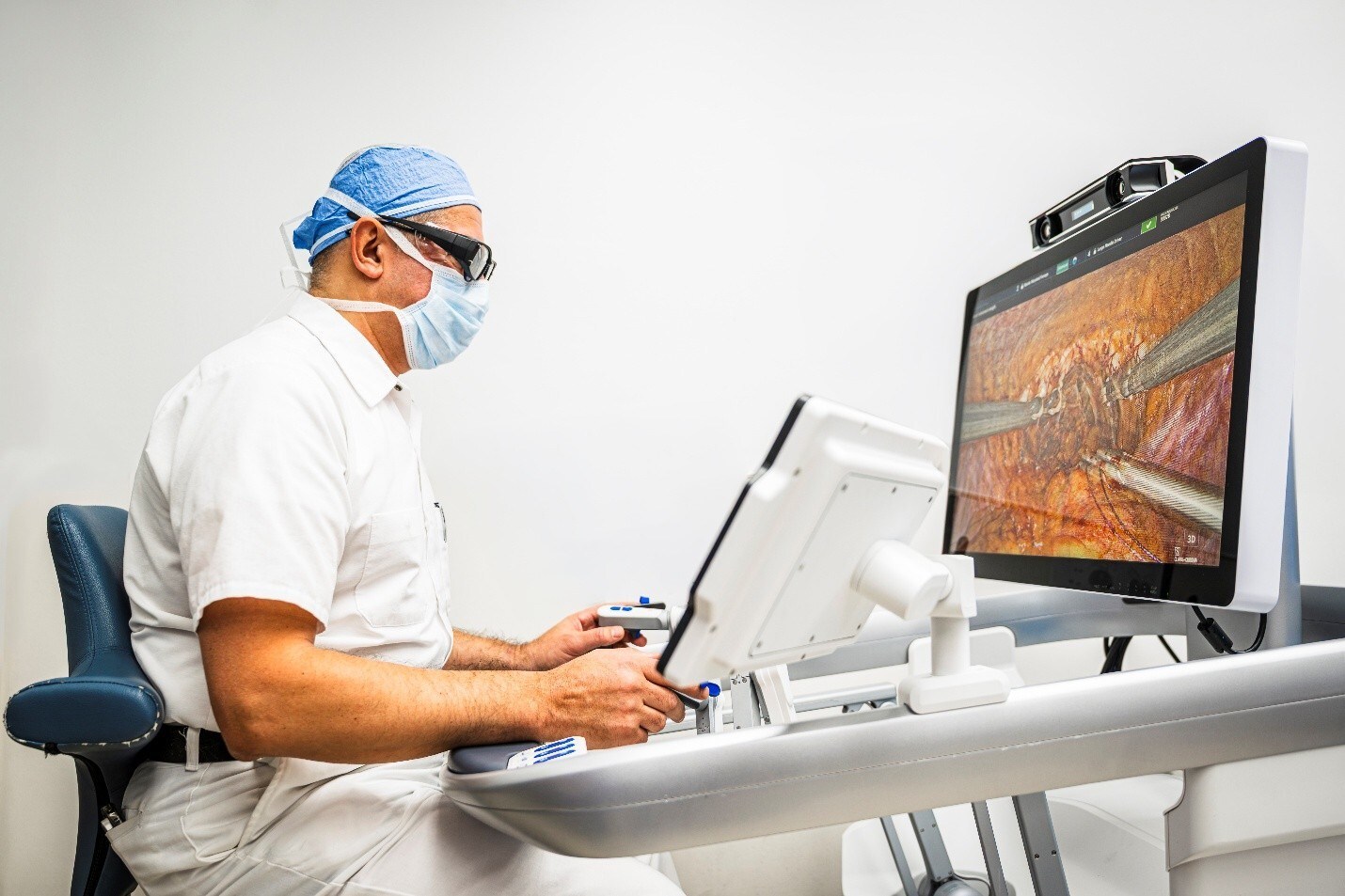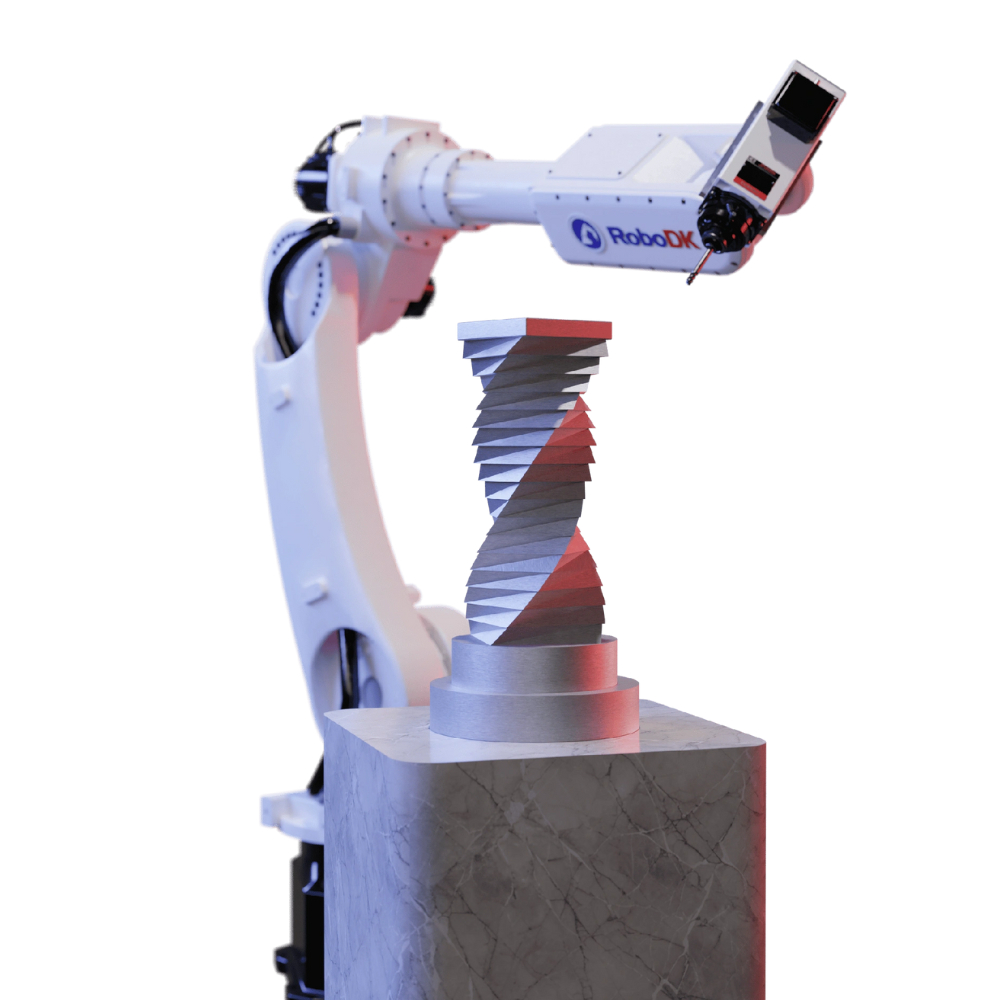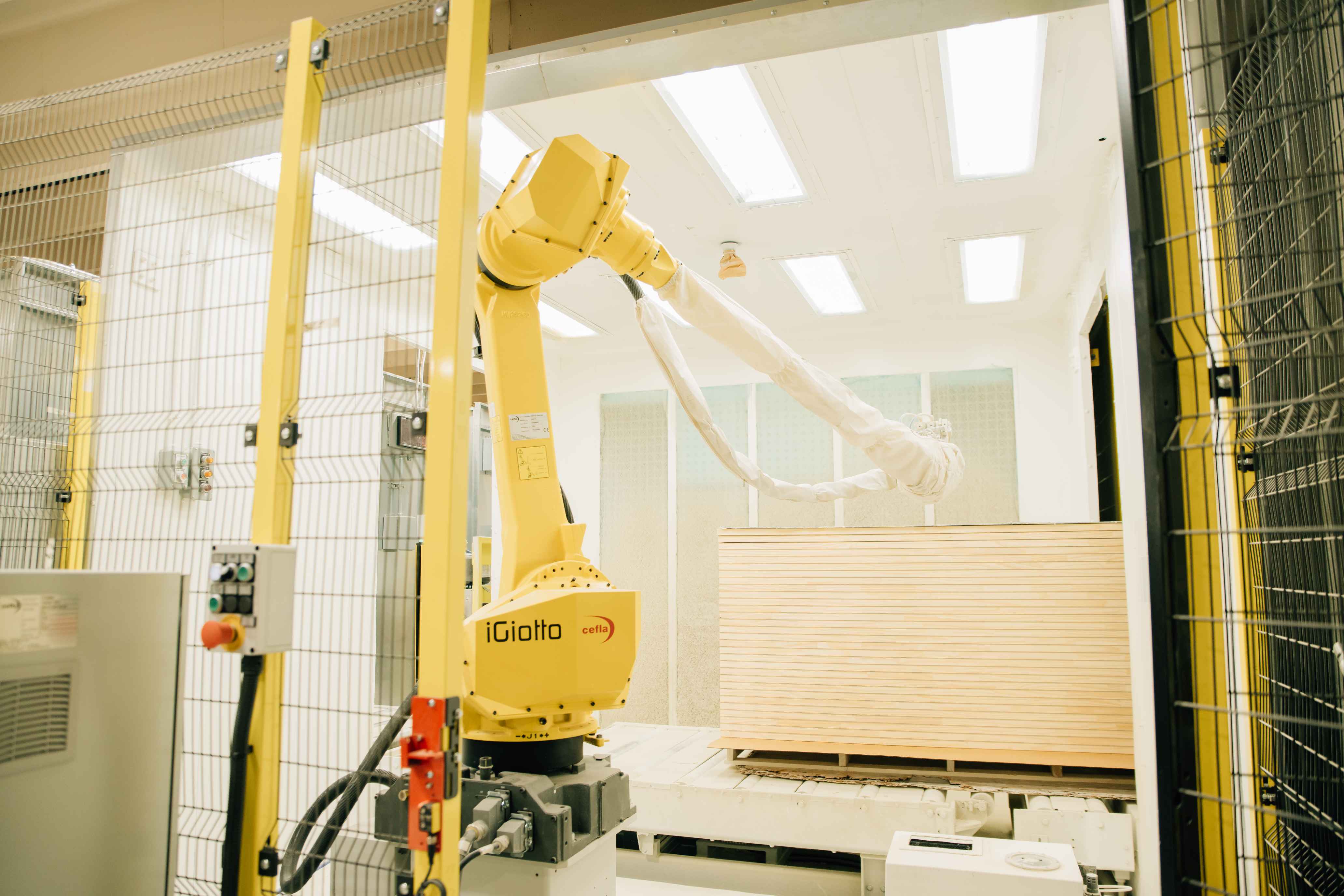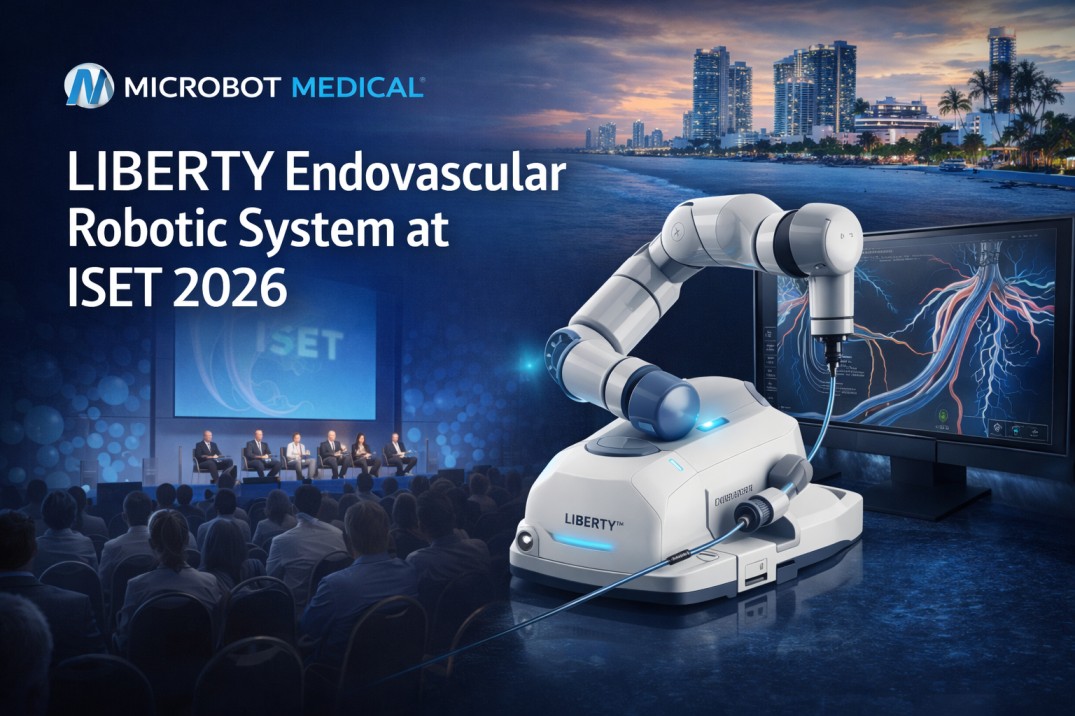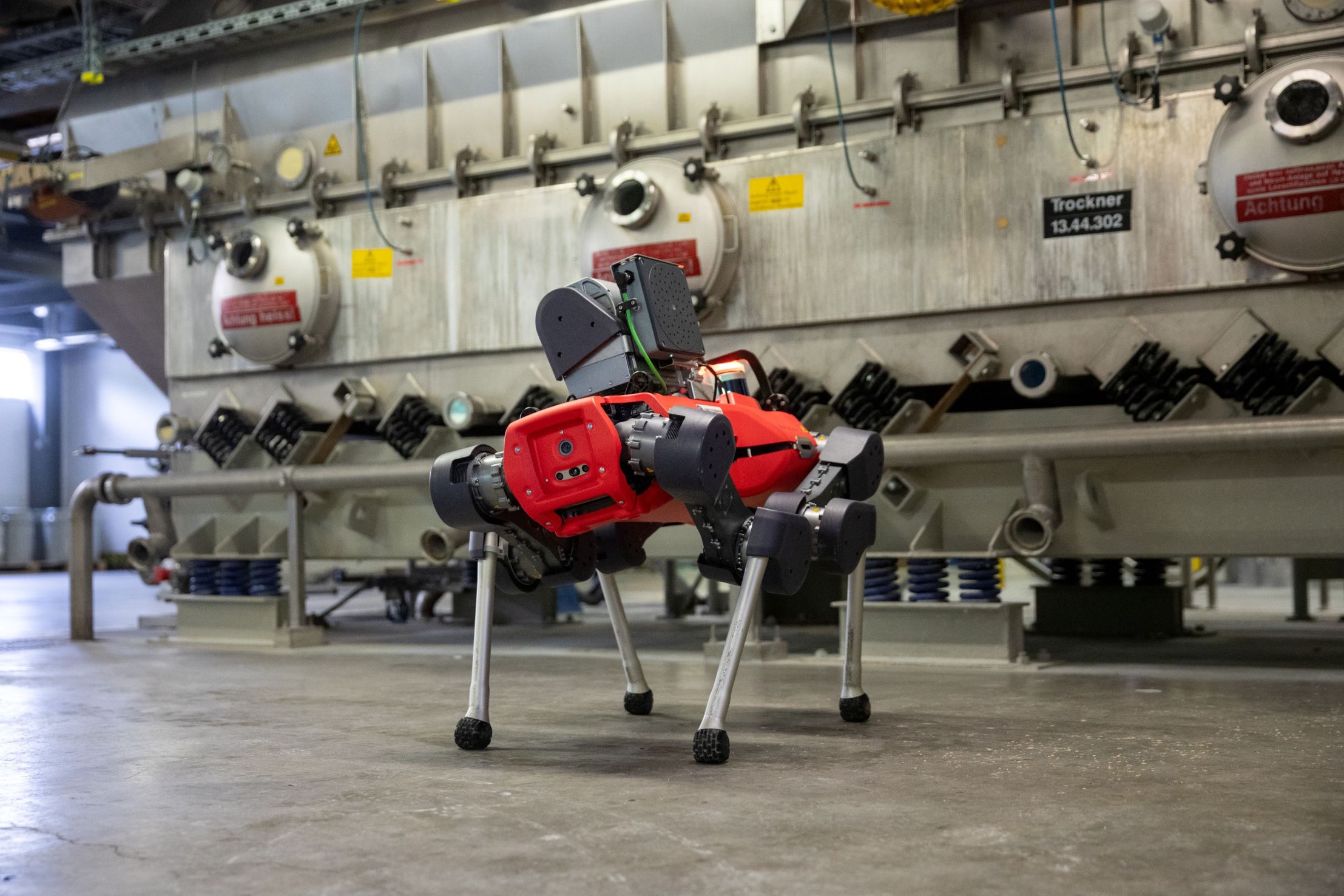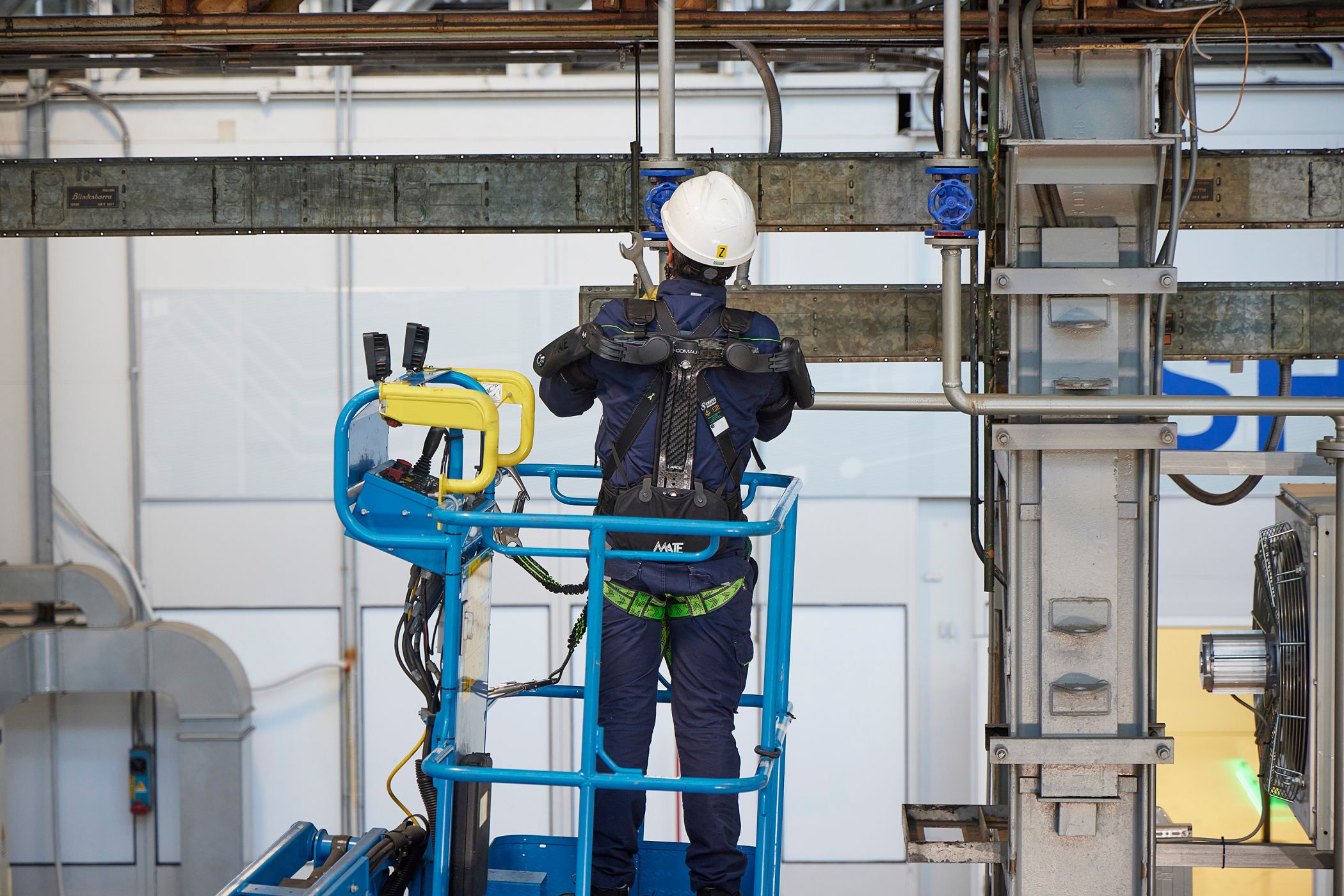AI-Powered Endoscopy Enhances Cancer Detection in Sunraysia
Mildura Health Private Hospital's $900,000 Investment Introduces Advanced AI Technology for Earlier Diagnosis and Improved Patient Care.
Image Courtesy: Public Domain : (L-R) Mildura Health Private Hospital’s Dr Margaret Dunkley, Dr Tom Gleeson, Nurse Unit Manager Kylie Fisher, and Dr Jim Tryfonopoulo
Patients in the Sunraysia region can now benefit from the power of artificial intelligence (AI) thanks to a $900,000 investment by Mildura Health Private Hospital.
The hospital has acquired a state-of-the-art endoscopy system that allows for earlier detection of health issues and improves diagnostic accuracy, while making surgery safer.
The Olympus technology will primarily be used for treating bowel cancer but is also expected to help with diagnosing other complaints such as diverticulosis and ulcers.
The computer-assisted scope uses AI to detect abnormal growths in the large intestine earlier through enhanced imaging, helping to prevent the spread of cancerous cells.
“The AI helps with polyp detection so we’re more likely to pick up smaller polyps, and with the technology that they’ve got on these scopes we will also identify difficult-to-find polyps,” general surgeon Dr Jim Tryfonopoulos said.
Bowel cancer is the third most common form of the disease in Australia, with high mortality rates – it kills more than 5,300 people each year.
Dr Tryfonopoulos and fellow Mildura Health Private Hospital surgeons Dr Margaret Dunkley, Dr Tom Gleeson, Dr Amal Fernando and Dr Irene Kaibonu believe the Olympus technology is a significant step forward in diagnostics for patients in north-west Victoria.
“While the technology will also be useful for the diagnosis of other health complaints including diverticular disease, inflammatory bowel disease, and vascular lesions that might be causing bleeding, such as ulcers, its greatest impact will be in the fight against bowel cancer,” Dr Dunkley said.
“The key to prevention of bowel cancer is early detection through a colonoscopy or endoscopy. The Olympus scope improves the extent and accuracy of diagnostics, meaning we can catch it earlier, improving the prognosis for local patients.”
The surgeons urged people to be aware of symptoms – such as rectal bleeding – and take advantage of the new technology, regardless of age, by including colonoscopies in their healthcare plan.
“This disease does not discriminate – I have treated someone for bowel cancer who was diagnosed when they were just seventeen – it is being found in younger and younger people,” Dr Dunkley said.
“But it is important to remember that it is fully treatable and curable if found early. The real problem comes when we find it too late, and that happens because we don’t talk about it and we don’t get checked out.”
Dr Gleeson backed her call for more awareness and testing, having had a colonoscopy himself earlier in 2024 on Dr Dunkley’s advice.
“I had minimal symptoms but was found to have a high-grade polyp that was very close to bowel cancer,” he said.
“So I was very glad I went and had that procedure.”


